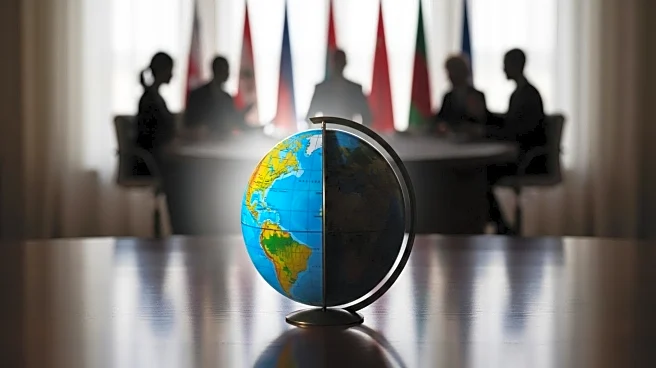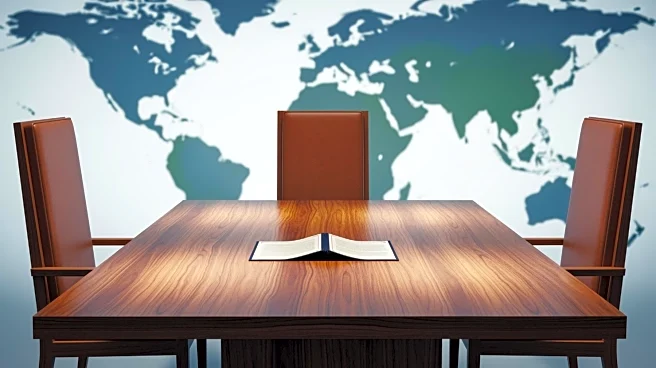What's Happening?
World leaders convened at the United Nations headquarters in New York to discuss the ongoing Gaza war and the potential for a two-state solution between Israel and the Palestinians. The meeting included high-level discussions with various heads of state, including Canadian Prime Minister Mark Carney. The discussions are part of a broader effort to address escalating tensions in the region and explore diplomatic solutions. The meeting also touched on other geopolitical issues, such as Indonesia's potential recognition of Israel contingent upon the recognition of a Palestinian state. This development highlights the complex international dynamics surrounding the Israeli-Palestinian conflict.
Why It's Important?
The discussions at the United Nations are significant as they represent a concerted international effort to address one of the most enduring and contentious conflicts in the Middle East. The potential for a two-state solution has long been seen as a viable path to peace, but it faces numerous challenges, including political, territorial, and security concerns. The involvement of world leaders underscores the global importance of finding a resolution to the conflict, which has implications for regional stability and international relations. The outcome of these discussions could influence future diplomatic strategies and impact the lives of millions in the region.
What's Next?
The next steps following the UN discussions will likely involve continued diplomatic engagement and negotiations among key stakeholders. The international community may increase pressure on both Israel and the Palestinian authorities to make concessions necessary for peace. Additionally, countries like Indonesia may play a more active role in the peace process, contingent on developments regarding Palestinian statehood. The situation remains fluid, and the coming months could see further diplomatic initiatives aimed at de-escalating tensions and advancing the peace process.








